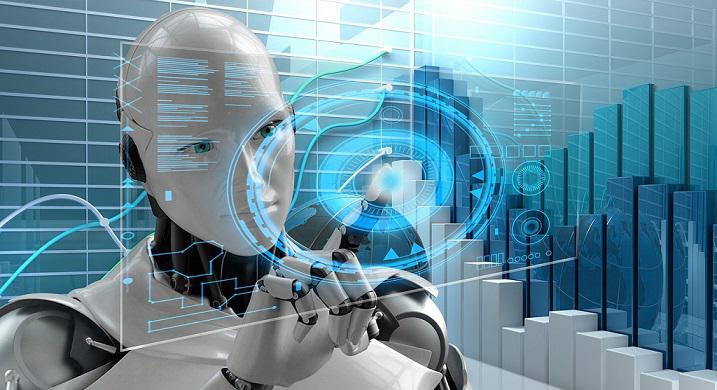- 1st floor, #1, Maruthi Nagara, Prashanth Building, 1st Cross, Iggalur, Chandapura Po, Anekal ( T ), Bengaluru
- support@ecin.in
- +918884936263
B.Tech Artificial Intelligence
Description
Introduction:
Artificial Intelligence (AI) is a rapidly advancing field that has revolutionized various industries, including engineering. By simulating human intelligence in machines, AI enables computers to learn, reason, and make decisions autonomously. In the context of engineering, AI has opened up new possibilities for solving complex problems, improving efficiency, and driving innovation. This article aims to explore the world of AI in engineering, its key applications, and its potential to reshape the future of the industry.
-
Understandin Intelligenceg Artificial; Artificial Intelligence refers to the development of computer systems that can perform tasks that typically require human intelligence. It encompasses various subfields, such as machine learning, natural language processing, computer vision, and robotics. AI systems learn from data, recognize patterns, and adapt their behavior based on experience, enabling them to perform tasks with speed and accuracy.

-
Key Applications of AI in Engineering: a. Design and Optimization: AI has transformed the design process by automating tasks such as modeling, simulation, and optimization. It allows engineers to generate innovative designs, optimize performance parameters, and explore complex design spaces more efficiently.
b. Predictive Maintenance: AI-powered systems can analyze sensor data, detect anomalies, and predict equipment failures in real-time. This enables proactive maintenance, reducing downtime, and improving the reliability of critical infrastructure and machinery.
c. Robotics and Automation: AI plays a crucial role in robotics and automation. Autonomous robots equipped with AI capabilities can perform complex tasks in manufacturing, logistics, and construction, leading to increased productivity and efficiency.
d. Data Analysis and Decision-Making: AI algorithms can analyze vast amounts of data, extract meaningful insights, and support decision-making processes. In engineering, this can be applied to areas such as quality control, supply chain optimization, and resource allocation.
e. Structural Health Monitoring: AI techniques, combined with sensor technologies, enable continuous monitoring of the structural health of bridges, buildings, and infrastructure. This helps detect and predict potential failures, ensuring the safety and longevity of critical structures.
- Advantages and Challenges: a. Advantages of AI in Engineering: i. Enhanced Efficiency: AI automates repetitive and time-consuming tasks, freeing up engineers' time for more complex and creative work. ii. Improved Accuracy: AI systems can analyze vast amounts of data with precision, minimizing errors and improving decision-making. iii. Innovation and Optimization: AI-driven design tools can explore a wide range of possibilities, leading to innovative and optimized solutions. iv. Cost Savings: AI can help reduce costs through improved efficiency, predictive maintenance, and optimized resource allocation.
b. Challenges of AI in Engineering: i. Ethical Considerations: As AI becomes more prevalent, ethical questions arise, such as privacy, bias, and accountability. ii. Skill Requirements: Engineers need to acquire new skills to leverage AI effectively and understand its limitations and potential risks. iii. Data Quality and Availability: AI relies on high-quality data, and obtaining relevant and reliable data can be a challenge in some engineering domains. iv. Integration and Adoption: Integrating AI technologies into existing engineering systems and workflows may require significant changes and investment.
- The Future of AI in Engineering: The future of AI in engineering holds tremendous potential. As AI continues to advance, we can expect the following developments: a. Cognitive Systems: AI systems will become more capable of understanding complex human instructions and engaging in meaningful conversations, leading to enhanced collaboration between humans and machines. b. Autonomous Systems: AI will enable the development of increasingly autonomous systems that can perform complex tasks with minimal human intervention, transforming industries such as transportation, manufacturing, and construction. c. Explainable AI: The ability to explain and interpret AI models' decisions will become crucial, especially in safety-critical applications, allowing engineers to understand the reasoning behind AI-driven recommendations. d. Ethical AI: Efforts to ensure ethical and responsible AI development and deployment will continue to grow, focusing on fairness, transparency, and accountability.
Conclusion: Artificial Intelligence is reshaping the engineering landscape, empowering engineers with new tools and capabilities to tackle complex challenges. From design optimization to predictive maintenance and decision support, AI offers a wide range of applications that enhance efficiency, improve accuracy, and drive innovation. While challenges exist, the benefits of AI in engineering are undeniable. By embracing AI technologies, engineers can unlock new possibilities, revolutionize industries, and shape a future where intelligent machines and human ingenuity coexist synergistically.
